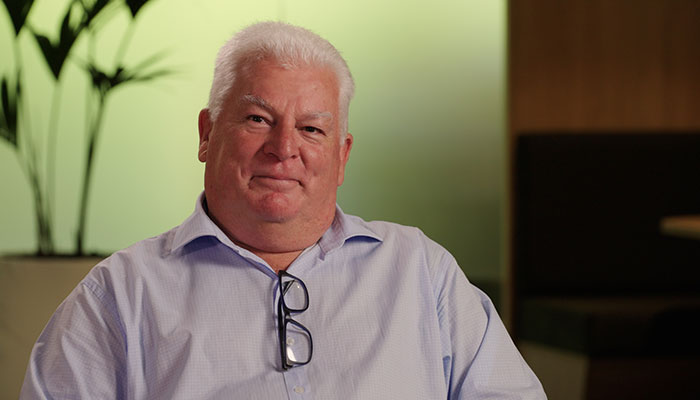Most of us know someone who has dramatically turned their life around by becoming more self-disciplined, or even witnessed the dramatic impact that a little bit of discipline can have on our own lives.

Aim high: Having clear goals to pursue is a cornerstone of achieving personal discipline, says Dr Hana Krskova.
We all have at least one friend who managed to stick to their New Year’s resolution to lose weight, get rid of their credit card debt or learn a new skill.
So why do some people succeed when so many fail? Is discipline itself the skill we should all be striving to master in 2020, and just how far-reaching could the impact be on our lives?
A couple of years ago, shortly after I began my PhD studies, I began wondering whether the underachieving university students and coaching clients I was interacting with could be taught to be more disciplined.
So why do some people succeed when so many fail? Is discipline itself the skill we should all be striving to master in 2020?
So, encouraged by three Macquarie University colleagues – Associate Professor Yvonne Breyer, Associate Professor Chris Baumann and Honorary Professor Leigh Wood – we investigated the issue and wrote our paper, An exploration of university student perceptions of discipline: Introducing FIRST discipline principles.
We interviewed university students from a range of backgrounds and questioned them on what they perceived ‘discipline’ to be and whether they believed discipline would help them do well at university and in their future careers.
- A new type of antibiotic passes its first test
- The new taboos: how COVID-19 is changing our social world
At first glance, the results were unremarkable. The students found it difficult to define discipline and weren’t sure whether it referred to the externally enforced discipline provided by parents, teachers and employers, or internally summoned discipline.
Nonetheless, all the students believed discipline was positively correlated with academic and workplace performance. Around half of them said they aspired to be more disciplined.
Defining discipline
After crunching the data, it became apparent the students (collectively) referred to five topics under the acronym FIRST when asked to define discipline:
- Focus – eliminating distractions to complete tasks
- Intention – having clear goals to pursue
- Responsibility – taking personal responsibility for one’s actions
- Structure – creating a structure to achieve goals
- Time – managing time to complete tasks
While my personal story of an immigrant who taught herself English and went on to succeed in business and academia is far from unique, I believe the application of discipline helped me to achieve my goals.
Upon reflection, I realised I had subconsciously taken a FIRST approach to learning a new language. When I was studying English that was my sole focus. I saw it as my responsibility to learn it and didn’t expect my employer or the government to provide me with language classes. I created a structure by committing to getting through two pages of exercises each day. And I managed my time.
Understanding discipline
Even advocates for greater investment in education concede that ever-increasing funding for Australia’s schools in recent years doesn’t appear to have greatly improved the performance of Australian students. This is generally explained away with reference to the different amounts of funding private and public schools receive.

Discipline vs investment: Australian parents’ enthusiasm for schools – private or public – that champion discipline suggest they intuitively grasp its importance.
Yet it’s not difficult to find modestly resourced private and public schools that achieve exceptional results. I would argue those results are due to a combination of external discipline enforced by teachers and a higher number of students with above-average internal discipline.
Australian parents’ enthusiasm for schools – private or public – that champion discipline suggest they intuitively grasp its importance. Researched conducted by Associate Professor Chris Baumann and me suggests that assumption is correct.
After analysing data relating to 500,000 students in 64 countries, we found discipline is more important than investment. That is, all else being roughly equal, a school with good discipline will outperform a well-resourced one.
Soft skills
The available evidence suggests that discipline continues to be important after people leave the education system. For example, research done by Nobel Prize-winning economist James Heckman suggests workers who possess soft skills, such as perseverance and conscientiousness, can out-perform and out-earn their more technically or cognitively gifted colleagues.
Of course, having internal discipline doesn’t necessarily mean someone will possess all the desirable soft skills. But a disciplined individual who aspires to perform at a high level is, for instance, much more likely to succeed in challenging circumstances and take a meticulous approach to their work tasks.
Spreading the FIRST gospel
Along with my Macquarie Business School colleagues, I’m now seeking to educate as many people as possible about how they can empower themselves by using FIRST discipline principles. I hope that in the not-too-distant future, schools, universities, sports clubs and employers will all offer courses in FIRST.
In the meantime, I would like people to realise discipline is both a teachable and learnable skill. You aren’t simply born with a set amount of discipline that never increases or decreases. You can become more disciplined then harness that greater self-control to become fitter, healthier, happier, more successful in your career and less prone to risky behaviours.
People from any background, in any situation, with any goal, can use FIRST. If they do, they are likely to be astonished by what they can accomplish.
Dr Hana Krskova is from the Department of Marketing at Macquarie Business School



